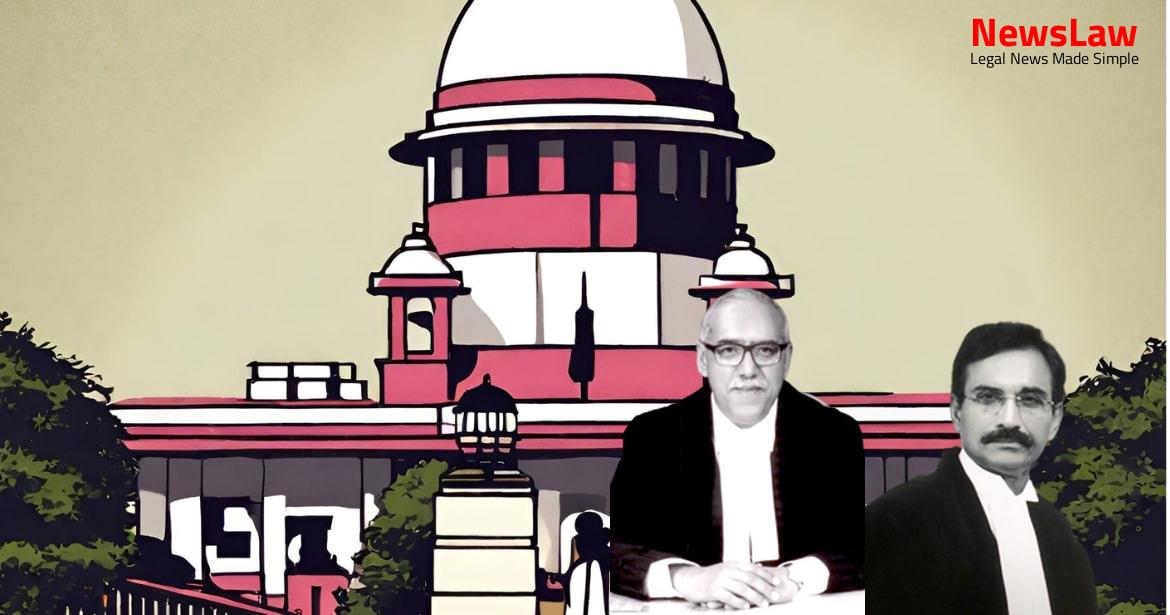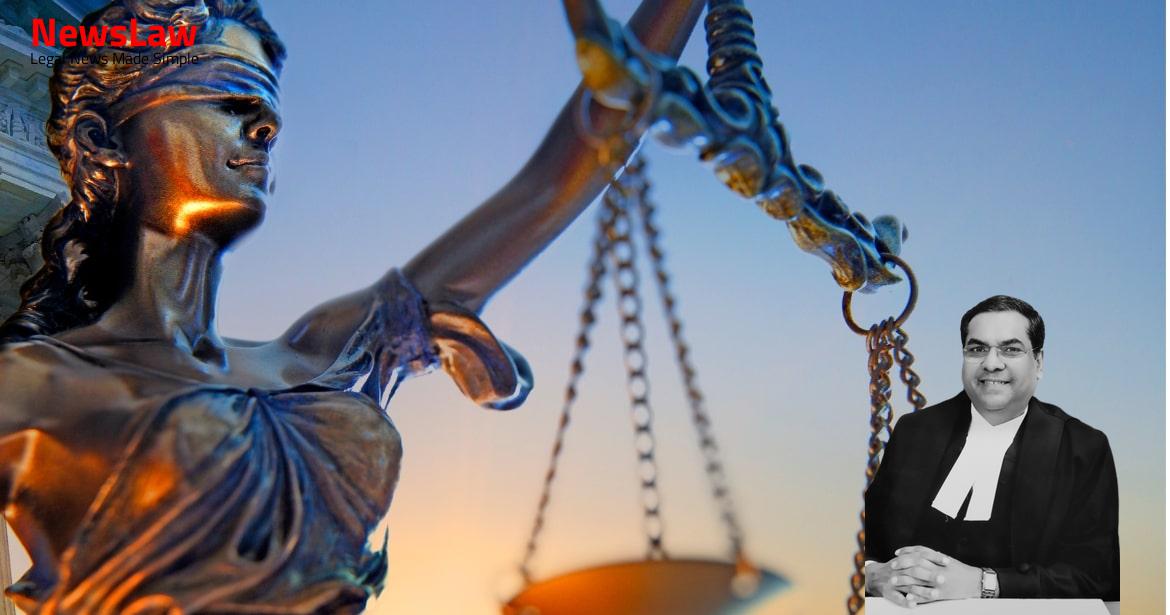The case involves a significant legal analysis by the court regarding deputation allowance for personnel of the National Disaster Response Force (NDRF). The court delved into the interpretation of rules and relevant orders to determine the eligibility of NDRF personnel for deputation allowance. The court’s analysis sheds light on the nuanced aspects of deputation, control, and jurisdiction in the context of personnel serving in specialized disaster response units. Stay tuned for more insights on this important legal issue.
Facts
- The Ministry of Home Affairs agreed to pay deputation allowance to personnel of Central Para Military Forces deputed with NDRF @ 5% in the same station and @ 10% outside the station.
- The appellant enacted the Disaster Management Act, 2005 which led to the constitution of the NDRF for specialized response to disaster situations.
- The NDRF was initially constituted by drawing Battalions from various Central Police Forces like BSF, CRPF, ITBP, and CISF.
- After the enforcement of the Rules in 2009, control of NDRF Battalions shifted to NDRF authority for pay and allowances.
- The respondent, employed with CISF, was sent to NDRF and requested deputation allowance and special allowance from 2008 onwards.
- The Delhi High Court held that writ petitioner was deemed to be on deputation in terms of sub-rule 3(1) and 3(2) of the Rules and OM No 6/8/2009-Esti.(Pay II) dated 17.06.2010.
- Based on the OM, all persons who joined the NDRF would be treated as on deputation from the date they joined.
- SLP against the judgement was dismissed without expressing an opinion on the merits.
- The respondent filed a writ petition in the Madras High Court challenging the interpretation of sub-rule 3(1) and 3(2) of the Rules.
- An appeal was filed by Union of India against the Madras High Court judgement before the Division Bench.
- The Delhi High Court in another case held that deputed employees with the NDRF are entitled to deputation allowance.
- Madras High Court allowed the writ petition, granting deputation allowance and special allowance to the respondent.
- The Division Bench allowed deputation allowance but denied special allowance to the respondent, stating that all NDRF personnel from 19.01.2006 to 13.01.2013 are entitled to deputation allowance.
- Central Government was directed to ensure payment of deputation allowance to eligible personnel within six months.
Also Read: Analyzing Contempt of Court in Scandalous Allegations Case
Arguments
- The appellant argues that the deputation allowance should only be granted from 14.01.2013 as per the O.M. and not from the date of the force’s constitution on 19.01.2006.
- Rule 3(2) allows for the deputation of employees to the NDRF.
- The respondent relies on the Delhi High Court’s reasoning in the Brij Bhushan case and various communications to argue that all personnel deputed from the Central Para Military Forces to the NDRF are deemed to be on deputation in the NDRF from the time of its constitution.
Analysis
- The High Court exercised jurisdiction only over the State(s) where it is located.
- The Union of India filed an appeal in the case, and no other party was present before the Division Bench.
- The High Court went beyond the relief claimed by the petitioner in granting certain allowances.
- The High Court exceeded its jurisdiction by directing relief for all employees without proper jurisdiction or prayer before it.
- The concept of control in deputation implies the transfer of an employee to another department/organization with dominant control vested in the transferee.
- Deputation typically involves both the assignment being in the public interest and the consent of the employee.
- Until 11.09.2009, the respondent was under the control of his parent organization, CISF, and receiving pay and allowances from them.
- Although the respondent served the NDRF as part of his Battalion, he was not on deputation to the NDRF as he remained under the control of CISF.
- The functions of the Central Government were transferred to the Corporation in accordance with Section 12 of the Act upon the Corporation commencing operations.
- Deputation involves service outside the cadre or outside the parent department where the employee is serving.
- Transfer is limited to an equivalent post within the same cadre and department.
- Deputation is temporary while transfer is not.
- Deputation is a voluntary assignment of an employee from one department or cadre to another, with the consent of both the lending and borrowing authorities.
- Control over the employee also plays a role in determining whether the employee is on deputation.
- High Court may be justified in passing order for State employees within its jurisdiction
- Cannot pass order with pan India repercussions for employees
Decision
- Intervenors can now dispose of their writ petition in light of the law laid down in the judgment
- Any pending applications should be disposed of accordingly
- The appeal has been partly allowed, directing the respondent to be paid deputation allowance from 11.09.2009 to 07.10.2011 when he was relieved from service
Case Title: UNION OF INDIA Vs. R THIYAGARAJAN (2020 INSC 328)
Case Number: C.A. No.-002229-002229 / 2020



